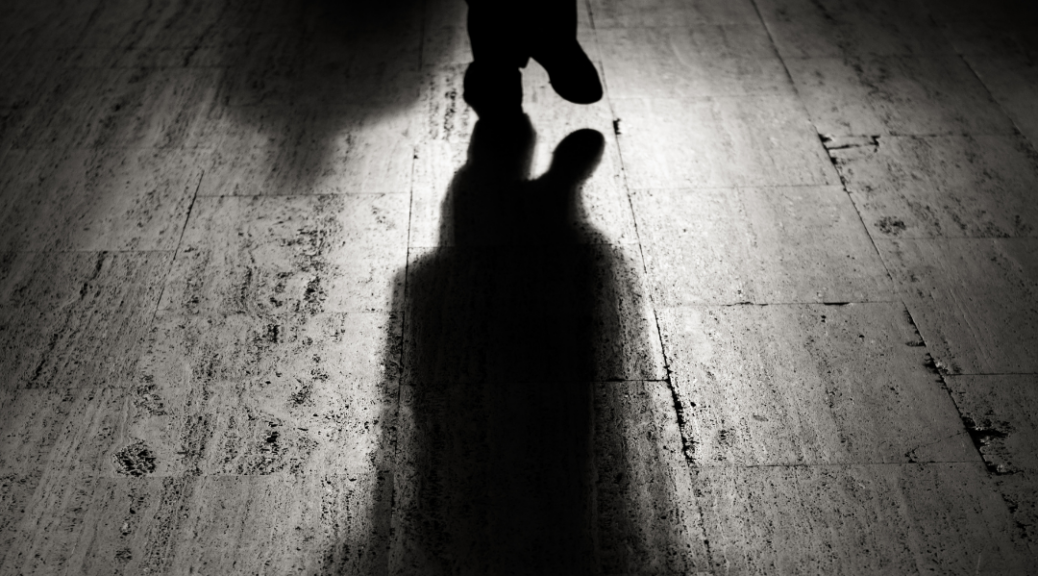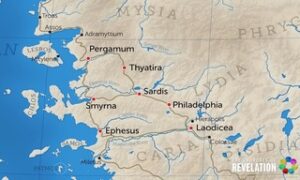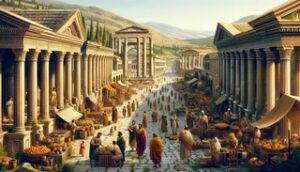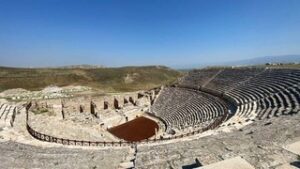
The Shadow of Apathy #2
(Discussion Notes Below)
The Lie: There is nothing worth giving yourself for.
The Truth: You were born to live a life of consequence.
This morning, I want to focus specifically on spiritual apathy. When your faith, your focus on Jesus is lukewarm. I want to do this by looking at the lukewarm church in Revelation 3. Ephesus was the most prominent city of the seven cities referred to in Revelation 2-3. The church at Ephesus was the mother church of the six other churches in the surrounding suburb cities. John writes these seven letters in a clockwise order. Laodicea is 40 miles east of Ephesus and was the last of the letters.
There are a few noteworthy features of Laodicea:
- It is a prominent city for banking and business. One of the most profitable businesses was black wool. If you lived in the Roman Empire and owned a black wool garment from Laodicea, you were wearing an elite piece of clothing. Shopping was big business in the city. Banks bought and sold gold in Laodicea and made quite a bit of money. The city was so wealthy that in 60 A.D., when a devestating earthquake crippled the city, the Roman Emperor sent disaster relief funds and Laodicea refused the money. Wealthy citizens rebuilt a stadium, heated and covered walkways for the market place and a massive city gate bracketed by twin towers. Laodicea was an impressive, elite, self-sufficient city. This is the goal for many men. To be elite, impressive and self-sufficient.
- Laodicea was also home to a well known medical school that specialized in eye care. There was a rock in the region which was ground into powder and then made into an eye salve that, when applied to the eyes, helped your vision. The powder was so popular it was shipped all over the Roman Empire. People all over the Roman Empire associated Laodicea with better eye-sight.
However, Laodicea had a water problem. Six miles north of Laodicea was a city called Hierapolis. You could easily see the famous white cliffs of Hierapolis from Laodicea. The cliffs were white because of minerals in hot springs which bubbled out of the ground and formed hot baths. People poured into the town from hundreds of miles away looking for help. If you were tired or arthritic, you could find healing and comfort at Hierapolis!
Ten miles to the east of Laodicea was Colossae. Colossae sat at the base of a snow covered mountain range and year round, thundering down the mountainside toward Colossae were many clear, cold, refreshing streams which irrigated the valley and brought refreshment and vitality to weary, thirsty people.
On one side, you have hot, healing water and on the other side there is cold, refreshing water. In the middle is Laodicea, which was known to have lukewarm, mineral filled water – just the smell of it made you nauseous.
And to the angel of the church in Laodicea write, ‘The words of the Amen, the faithful and true witness, the beginning of God’s creation. “I know your works: you are neither cold nor hot. Would that you were either cold or hot! So, because you are lukewarm and neither hot nor cold, I will spit you out of my mouth. For you say, I am rich, I have prospered, and I need nothing, not realizing that you are wretched, pitiable, poor, blind, and naked. I counsel you to buy from me gold refined by fire, so that you may be rich, and white garments so that you may clothe yourself and the shame of your nakedness may not be seen, and salve to anoint your eyes, so that you may see. Those whom I love, I reprove and discipline, so be zealous and repent. Behold, I stand at the door and knock. If anyone hears my voice and opens the door, I will come in to him and eat with him, and he with me. The one who conquers, I will grant him to sit with me on my throne, as I also conquered and sat down with my Father on his throne. He who has an ear, let him hear what the Spirit says to the churches.'”
Let’s break down the letter into these two words – Amen and Assessment.
Amen (vs. 14)
In every letter to the seven churches, Jesus begins with a description of himself. Look how he describes himself to the church at Laodicea: “The words of the Amen”. Amen is actually a Hebrew word that means reliable or “faithful and true”. In other words, Jesus begins by telling this church, which is blinded but doesn’t know it, that he is a reliable source. He has clear vision about their current condition.
Here lies a primary challenge for us all. So often, we don’t see ourselves accurately. We have one assessment and God has another. In the Matthew 25 parable of the talents, the personal assessment of the man was, “I was afraid.” Jesus correctly assesses him and says, “No, you were lazy.” In Mark 14:29, Peter declares “even if all the other disciples fall away, I will not!” Peter assumed that Jesus had misjudged the depths of Peter’s love and commitment. Peter believed Jesus was mistaken in his prediction that he would deny him. For Peter, doubting Jesus was easier than doubting himself! We all know how this ends. Sadly, Peter has more internal exploration ahead of him. He has not yet encountered the extent of his pride or his fear.
Jesus alone is the one with clear vision of us. Amen. His words alone are faithful and true. The watershed moment for every disciple truly following Jesus is deciding whether God’s word has final authority or your words do.
It’s a sobering statement for a country whose ultimate holiday is the celebration of Independence. Here is a picture of a popular Revolutionary War flag:
It’s hard to tell people about a king, when what’s bred in their DNA is “we don’t want a king.”
Assessment (vs. 15-17)
Notice that the problems in the church at Laodicea mirror the water problems in the culture. It’s like the useless, lukewarm water from the city, flooded into the church. The city is full of lukewarm water and the church is full of lukewarm believers.
The church was intended to be God’s counter-culture, yet the church in Laodicea looked just like the world. So, when people walked in tired and sick of the world’s offerings, they didn’t find the hot healing help only the church can provide. When people walked in thirsty and worn out from the world, they didn’t find cold refreshment. Instead, when they walked in dying to find something transcendent, seeking for something sacred, instead, they found people focused on their own wealth and independence. The church in Laodicea was full of people pretending, they attached Jesus to their lives like a trinket you buy in the market place. Jesus’ reaction was very strong: “It makes me want to puke.”
What infiltrated their once vibrant faith and turned it lukewarm? Wealth and self-sufficiency (vs. 17). I am rich. I have prospered. I need nothing. Everything begins and ends with me. Perhaps the most disturbing part of Jesus’ assessment is that the people don’t see their problem (vs. 17). What they see – I am wealthy, with great vision and well dressed. What Jesus sees – you are poor, blind and naked.
We know from Jesus’ Sermon on the Mount that the love of money has a blinding effect on us. This was the condition of the people in Laodicea. They thought their eyes were good, especially good since they had the special salve. Yet, Jesus says they were blind.
Ways money and possessions have a blinding effect:
- Money and possessions can blind you from thinking you are greedy. All it takes to think you are not in danger of being greedy is to know just one person who seems a bit more extravagant than you think they should be. “I’m not greedy, but I can show you someone who is.”
- Money and possessions blind you from remembering whose money it is. The blinding effect is we believe what we earn is ours. In other words, we tend to think of ourselves as masters not managers. We think, “I have earned wealth” rather than “I have been entrusted with wealth.”
This blindness is so easy to spot in others. My precious grandson Daniel Paul Phillips was with me at a basketball game. Daniel had a bag of peanut M&M’s which I waited in line for, I paid for and I even tore open the bag for him. I reach to grab one and his response, “No, they’re mine!” You don’t have to teach it. In every human heart, gifts are quickly converted into ownership.
- Money and possessions blind you from what’s truly valuable. Read Ecclesiastes 2:4-11. It turns out, it’s all vanity. Just like the rubble of Laodicea, so will our own wealth be. Now nobody cares about the black wool, gold or eye salve.
I love the picture in Revelation 3:20. This is Jesus trying to get back into the church. Amazing! His instructions to us are “to conquer – repent and be zealous” for Jesus and not his stuff.
Questions:
- How do you get help to see yourself accurately? What’s your greatest challenge in allowing Jesus/The Bible to have the final word about you and how you live your life?
- How would you know if wealth was having a blinding effect on your life and making you lukewarm or apathetic to real spiritual development?
- What’s your current spiritual temperature? What practices or habits could you develop to be more zealous for Jesus rather than for the world?
Iron Leadership Materials:




